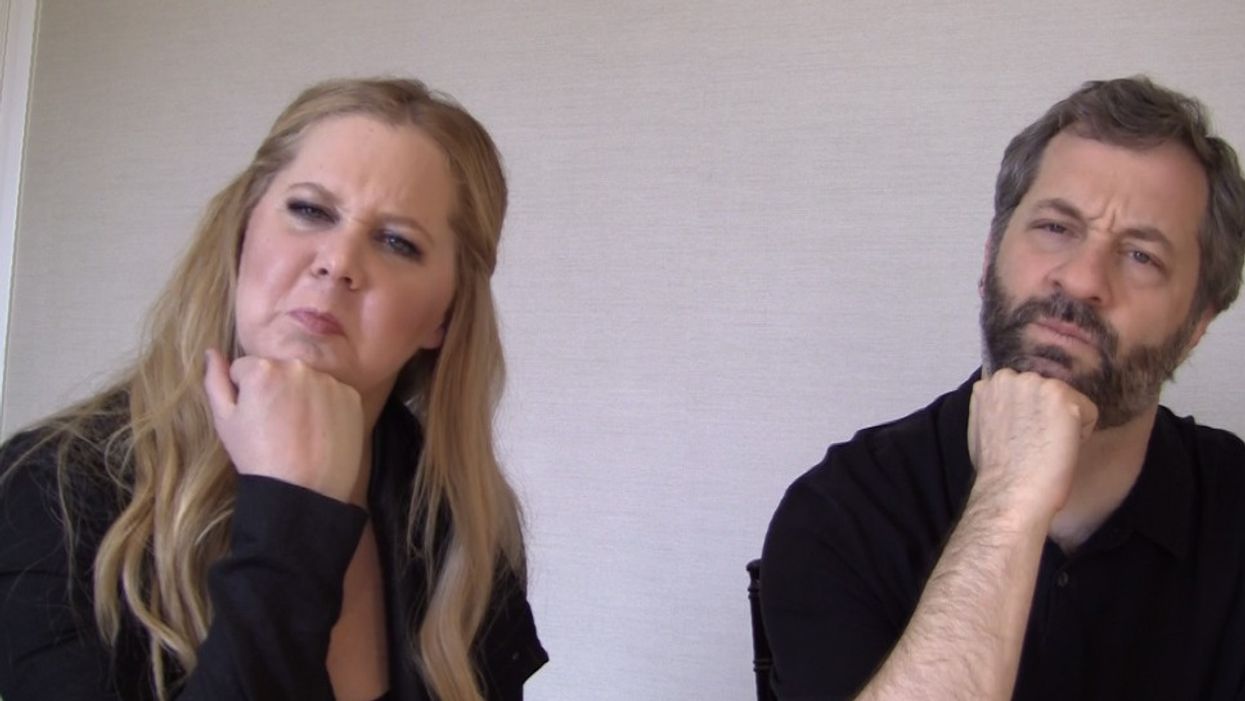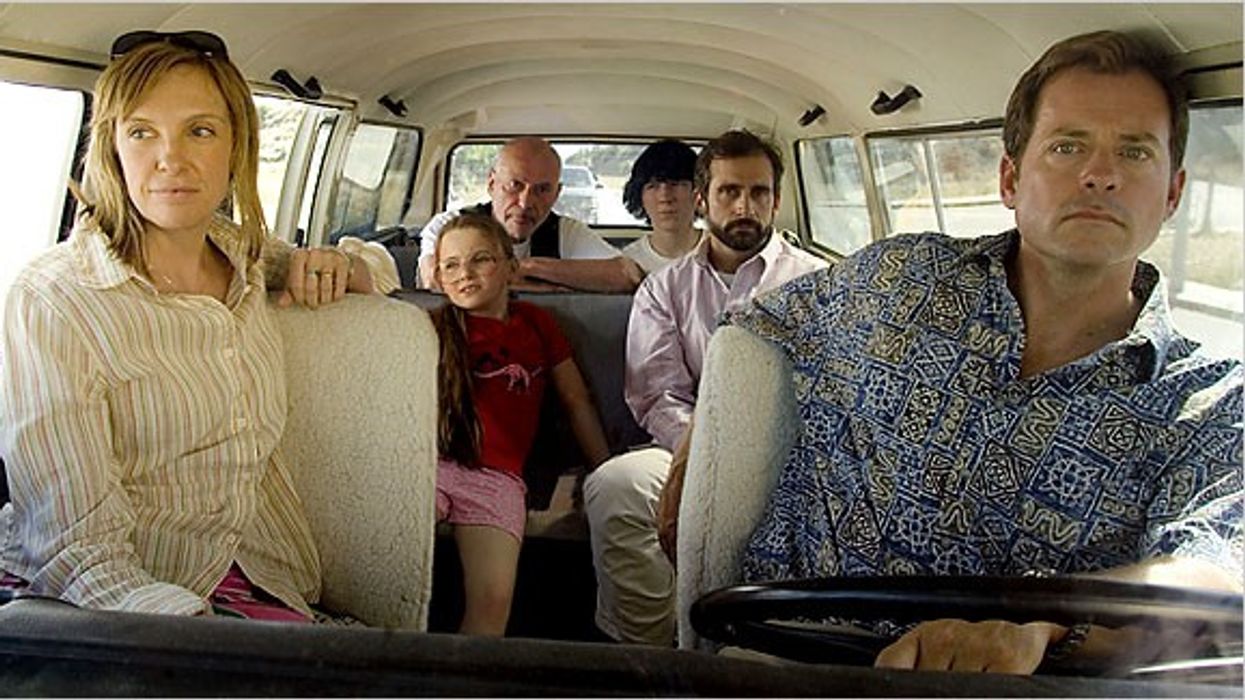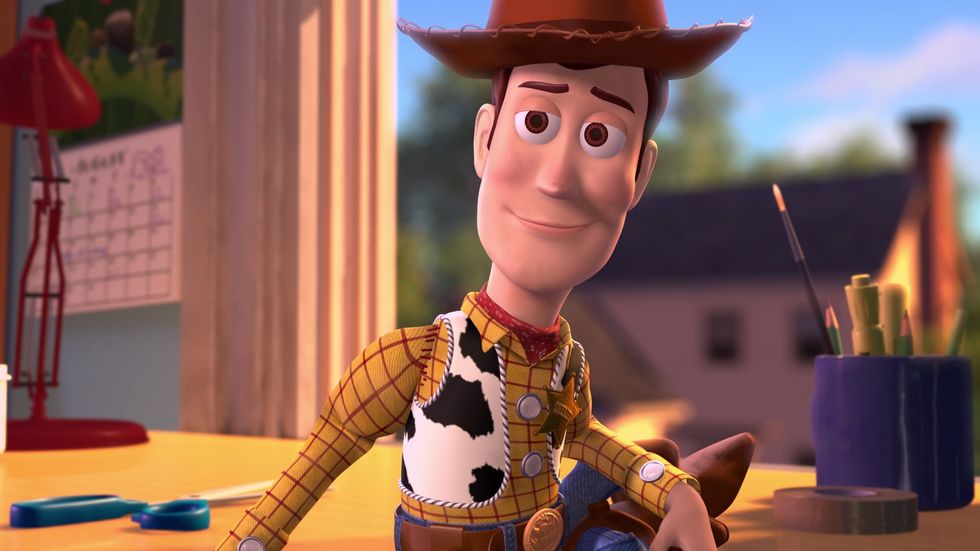Netflix Testing Various Playback Speeds Pisses Off Some Filmmakers
Filmmakers like Judd Apatow (Knocked Up) and Spider-Man: Into the Spider-Verse's Peter Ramsey are not fans of Netflix's plan to test drive various playback speeds for subscribers.

Last week, we learned that Netflix was actively testing various playback speeds that would allow subscribers to speed up or slow down content on their smartphones -- that would let them binge shows and movies faster or slower than the standard playback speed. (SMDH). Users weren't the only ones rightfully questioning that idea of the streamer streaming content at a different rate than its creators intended -- filmmakers like Judd Apatow and Peter Ramsey took to social media recently to voice their concern and displeasure.
Apatow, the co-creator of Netflix's Love series, slammed the feature, tweeting "No @Netflix no. Don’t make me have to call every director and show creator on Earth to fight you on this. Save me the time. I will win but it will take a ton of time. Don’t fuck with our timing. We give you nice things. Leave them as they were intended to be seen." He added:
Apatow continued by saying "Distributors don’t get to change the way the content is presented. Doing so is a breaking of trust and won’t be tolerated by the people who provide it. Let the people who don’t care put it in their contracts that they don’t care. Most all do."
Joining Apatow were Brad Bird (The Incredibles) and Oscar-winner Ramsay, whose Spider-Verse is currently streaming on the platform. Bird tweeted: "Whelp— another spectacularly bad idea, and another cut to the already bleeding-out cinema experience. Why support & finance filmmakers visions on one hand and then work to destroy the presentation of those films on the other???"
But the best, and most succinct, was Ramsay's chef's kiss of a tweet: "Fu** that sh**, @Netflix."
What You Can Learn
As streamers become more prominent and powerful in the space of how we receive our content, experiments like this will be attempted and hopefully shutdown given the deserved backlash. Whether you are privileged to have the level of creative success filmmakers like the above enjoy, or are working your way currently to secure it, your vision -- and how it is to be experienced -- should not be determined or altered by the platform hosting it.
Netflix's carefully-worded statement defends their choice in the name of research and "we're always innovating." Not apologizing or acknowledging and validating the concerns of high-profile filmmakers -- with access to even bigger talent that Netflix is attracted to -- is only making a problematic situation worse. As hills to die on go, this may feel like small potatoes. At the same time, you -- and the filmmakers here -- worked too hard for too long to be invalidated this way and have their material submitted to the manipulations of a streamer. Hopefully, filmmakers will win this one. Netflix doesn't have much of a leg to stand on here.
But now that this is out there, one has to wonder what other streamers like Hulu or Amazon Prime are doing in this R & D space. Movies and TV shows are largely easily digestible in their current formats and run times. To mess with that, and to upset the creators of that content, that makes things different or worse. Not better.
And the best is what both viewer and creator deserve.
Would you want your content sped up or slowed down at the mercy of whomever is streaming it? Does this bother you? Sound off in the comments below.
Source: THR
















